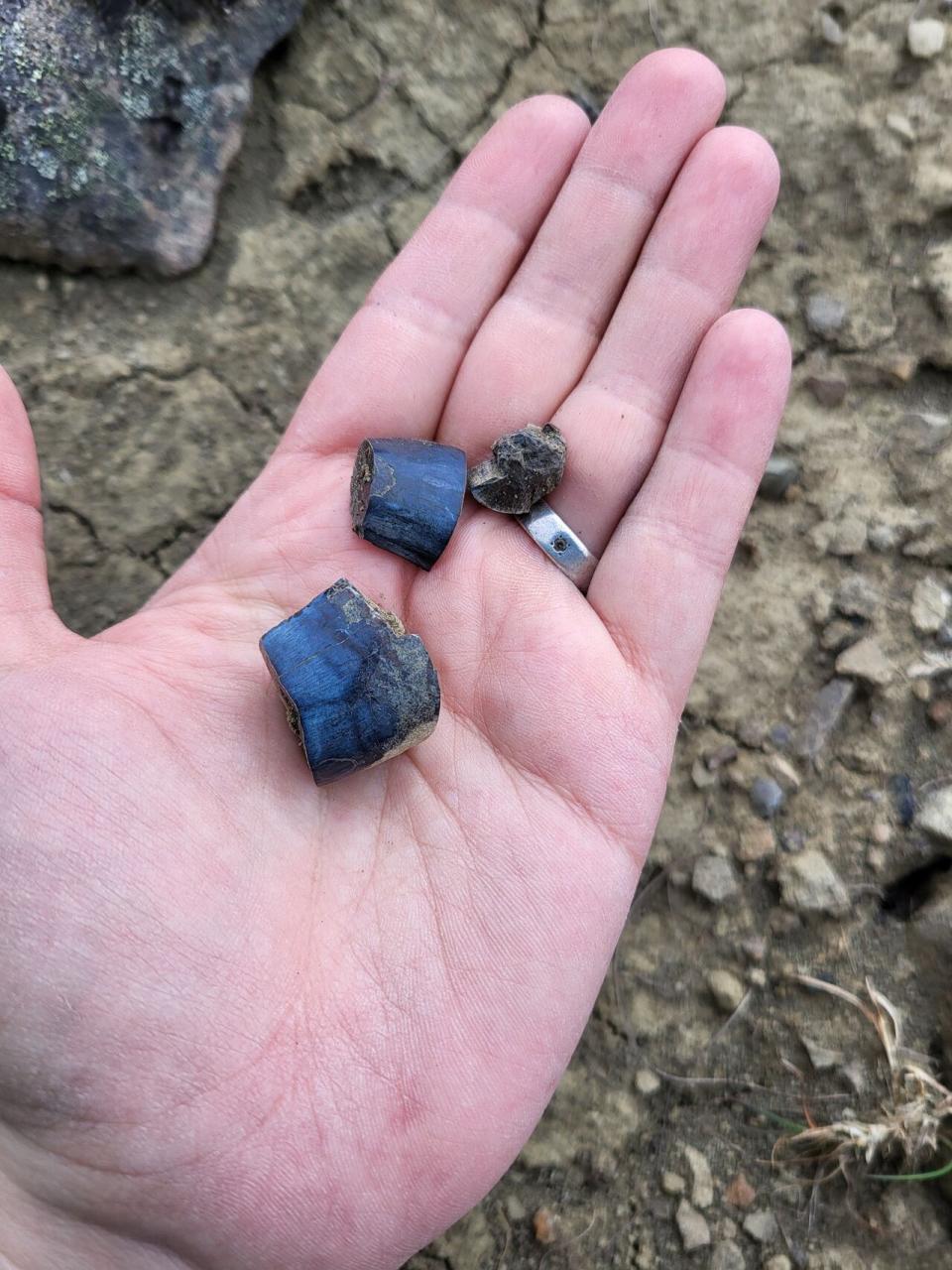Paleontologists have uncovered dozens of fossils in northern B.C., only one of which came from a dinosaur that was previously known to that area.
Victoria Arbour, curator of paleontology at the Royal B.C. Museum, said it was her team’s third time to the Spatsizi Plateau Wilderness Provincial Park, southeast of Dease Lake. The area is rough terrain, so the team has to be flown in by helicopter.
Usually, well-preserved dinosaur bones are found in deserts, where rocks are exposed, but Arbour said that on this particular mountain, her team hit the “mother lode of fossils.”
“We came back with over 90 dinosaur fossil bones, which we’re super excited about because this is a relatively unexplored place for fossils,” she told Daybreak North host Carolina De Ryk.
It’s unclear exactly what species the fossils belong to, but officials say that either way, a discovery like this one helps scientists better understand the history of this land.
“This is truly a remarkable discovery that will not only help us to understand more about the dinosaurs who roamed British Columbia,” Tracey Drake, the CEO of the Royal B.C. Museum said in a news release.
Tourism minister Lana Popham said this recent discovery will offer a better understanding of what happened on these lands millions of years ago.
“The discovery of new dinosaur fossils in the Skeena Mountains is a testament to the rich and diverse variety of fossils and fossil deposits that are a historical record of our province,” she said in a statement.
The team of researchers happened upon the cluster of fossils by chance, Arbour said.
“One day, we went to a new spot on the mountain and started finding bones all around our feet,” she said. “We were just picking them up off the surface.”

Fossils recently uncovered in the Splatsizi Plateau area are estimated to be up to 68 million years old. (Victoria Arbour)
They found things like teeth and chunks of bone. In particular, Arbour is excited about what she believes could be a group of bones that all appear to belong to one dinosaur’s foot or leg.
“We’re really excited to figure out what that could be. Is it a juvenile of a Tyrannosaur? Is it a small meat eater like a raptor dinosaur or other little meat eaters like that?”
Arbour estimates the fossils are 66 to 68 million years old.
Area ‘basically unknown’
The mountains in Spatsizi Plateau Wilderness Provincial Park haven’t been thoroughly explored by scientists because of their difficult terrain, Arbour said.
“This area is basically unknown,” she said.
“We basically don’t know what dinosaurs we are going to find there.”
She said it’s possible they’ll find species found in other areas, like Tyrannosaurus rex and Triceratops, but they may have found species that have yet to be discovered.
“The environment is really different from other places in North America where we find dinosaur fossils,” she said, pointing to neighbouring Alberta, where there are fewer trees and mountains.
She said finding dinosaur fossils at a high elevation — in this case, 2,000 metres above sea level — is unusual because it means they would have been living there.
Mountains would have stood on both sides of the Splatsizi Plateau area, Arbour said, and dinosaurs would have lived in mountain valleys.
“It probably didn’t look a lot different than it does today, except the mountains would have been even taller,” she said.
While it was a relatively short trip into the mountains to gather the fossils, the Royal B.C. Museum said it will take years for their findings to be analyzed.
First, Arbour said, bones will be carefully cleaned, and if they’re broken into pieces, will be glued back together. Then, they’ll figure out which part of the body each fossil belongs to and compare it with other species, either here in B.C. or in other museums.

